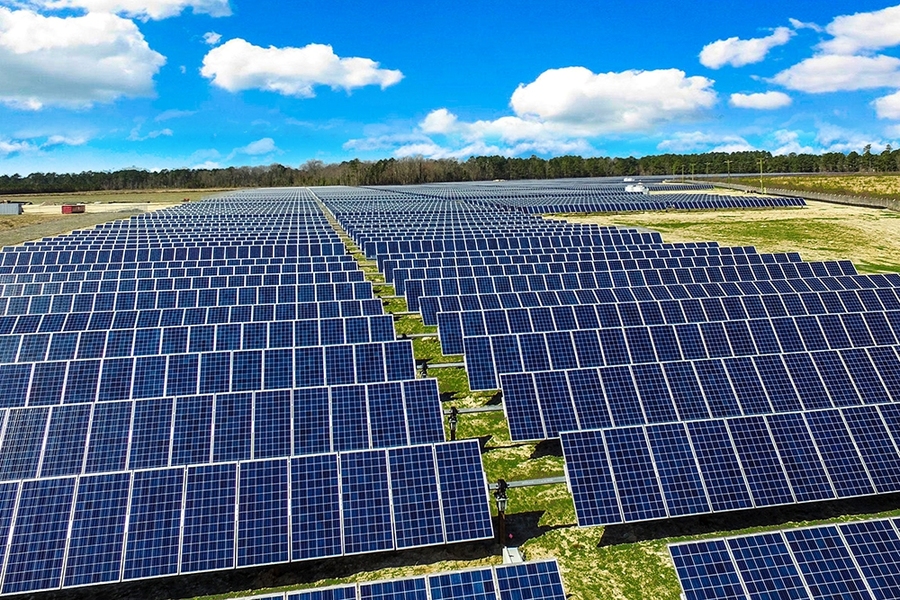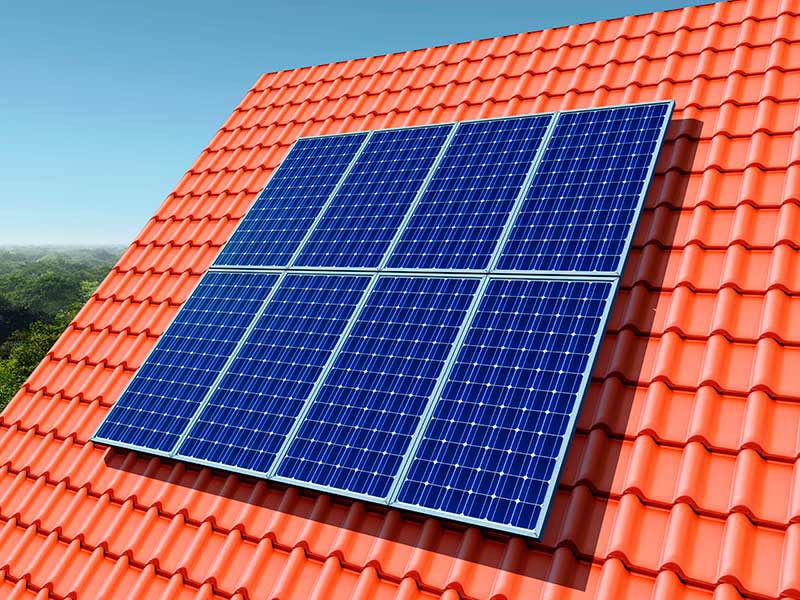Explore the latest technology in solar energy with Solar Panels.
Optimize Energy Cost Savings With High-Quality Solar Panels
Maximizing power savings through the use of high-quality solar panels is a complex technique that requires careful consideration of innovation, setup, and upkeep. Picking high-efficiency choices, such as monocrystalline panels, can considerably improve electrical power generation, while durability and service warranty terms play an important role in long-lasting economic practicality.
Benefits of Solar Energy
The benefits of solar power are various and substantial, making it a progressively appealing choice for both household and commercial applications. One of the main benefits is its prospective to lower power bills. By harnessing sunlight, homeowner can produce their own power, reducing reliance on typical energy sources and eventually causing considerable financial savings.
One more critical advantage is ecological sustainability. Solar power is a clean, renewable energy that assists to reduce greenhouse gas emissions, adding to a reduction in air contamination and environment change. This straightens with worldwide efforts to change towards even more sustainable power services.
In addition, solar energy systems can boost property value. Houses and organizations equipped with solar panels commonly have greater resale worths, appealing to environmentally-conscious buyers and investors. Federal government motivations, such as tax obligation credits and rebates, can offset installation costs, making solar energy even much more financially practical.
Lastly, solar innovation promotes energy independence. By buying solar energy, people and businesses can lower their susceptability to changing power costs and supply interruptions, fostering greater control over their power sources. Jointly, these benefits underscore the engaging factors to think about solar power services.
Selecting the Right Solar Panels
Selecting the right photovoltaic panels is a critical action in maximizing the performance and advantages of a solar energy system. When evaluating photovoltaic panels, a number of factors should be taken into consideration to guarantee optimum efficiency and long-term savings.
First, analyze the panel's performance score, which indicates just how successfully it transforms sunshine right into power. Higher effectiveness panels may have a higher ahead of time cost however can produce more energy in minimal area. Next off, examine the service warranty offered by the supplier; a much longer warranty typically shows a higher level of self-confidence in the product's durability and efficiency.
In addition, take into consideration the sort of solar panel innovation. Monocrystalline panels are understood for their high performance and space-saving style, while polycrystalline panels often tend to be more economical yet slightly less effective. Bifacial panels, which capture sunlight from both sides, are additionally obtaining popularity for their prospective to boost power output.
Finally, perform a complete testimonial of independent performance ratings and client testimonials to gauge dependability and fulfillment. By carefully considering these elements, house owners can make enlightened selections that align with their energy needs and financial goals, eventually improving the return on financial investment for their solar power systems.
Understanding Installation Expenses
Comprehending the expenses connected with setting up solar panels is crucial for house owners seeking to purchase eco-friendly energy. The overall installation cost can differ significantly based upon numerous variables, consisting of system dimension, panel type, installment intricacy, Read Full Report and geographical area.
Normally, the expense is determined on a per-watt basis, with typical prices ranging from $2.50 to $3.50 per watt prior to any kind of motivations. A common property system may set you back in between $15,000 and $25,000, depending upon energy needs and the picked elements.
Along with the panels themselves, property owners should take into consideration expenditures connected to inverters, mounting equipment, and electrical upgrades. Labor costs additionally play a vital function, as professional installment makes sure compliance with safety and security requirements and local laws.

Eventually, understanding these setup prices and prospective economic benefits is necessary for homeowners to make educated choices about transitioning to solar power.

Upkeep for Long-Term Financial Savings
Preserving photovoltaic panels is crucial for optimizing lasting energy cost savings and making certain the system operates at peak efficiency. Routine upkeep entails several essential methods that can significantly enhance the durability and performance of solar installments.
First, regular inspections see this here ought to be carried out to determine any kind of physical damages or wear, such as splits or loosened links. Cleaning the panels is also essential, as dust, dirt, and debris can obstruct sunlight, minimizing power result (Solar Panels). It is suggested to cleanse the panels at the very least two times a year, or more frequently in areas with high levels of dirt or pollution
In addition, monitoring the system's performance with a surveillance software can provide real-time information on power manufacturing and sharp house owners to any type of anomalies. This positive method permits prompt fixings, lessening downtime and preserving ideal energy generation.
Environmental Influence of Solar Power
The ecological effect of solar energy expands much beyond its immediate advantages of minimizing electrical power bills and reliance on fossil gas. By using sunlight, solar power significantly decreases greenhouse gas discharges, thereby minimizing environment modification. Unlike conventional power resources such as coal or natural gas, solar energy generation does not produce air pollutants, adding to improved air top quality and public health and wellness.
Moreover, solar power promotes biodiversity by lowering the requirement for nonrenewable fuel source removal, which frequently anchor interferes with environments and habitats. By transitioning to eco-friendly energy sources, we can preserve all-natural landscapes and shield threatened species from habitat loss.
The life process of photovoltaic panels also provides a lower environmental impact compared to standard energy sources - Solar Panels. While making solar panels entails some resource use and exhausts, developments in modern technology and recycling processes are consistently decreasing these influences. Additionally, the long-lasting benefits of solar power-- such as lowered reliance on finite sources-- much outweigh these preliminary prices
Conclusion
In summary, the adoption of high-grade solar panels offers considerable opportunities for power cost savings and environmental advantages. The tactical alignment of solar panel selections with energy demands and federal government incentives boosts return on investment, advertising sustainability and minimizing reliance on standard energy resources.